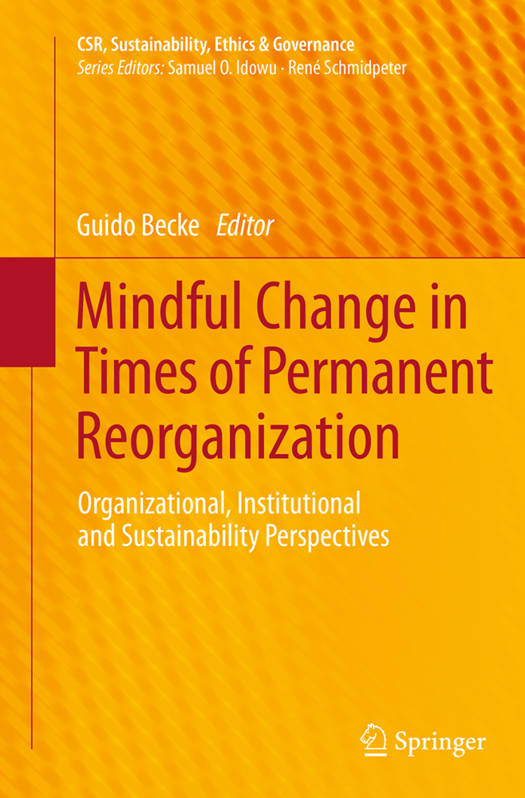
- Afhalen na 1 uur in een winkel met voorraad
- Gratis thuislevering in België vanaf € 30
- Ruim aanbod met 7 miljoen producten
- Afhalen na 1 uur in een winkel met voorraad
- Gratis thuislevering in België vanaf € 30
- Ruim aanbod met 7 miljoen producten
Zoeken
Mindful Change in Times of Permanent Reorganization
Organizational, Institutional and Sustainability Perspectives
€ 167,95
+ 335 punten
Omschrijving
Since the 1990ies, organizations from different sectors have been operating in increasingly dynamic socio-economic environments characterized by unexpected events and instability. Organizations tend to adjust to dynamic environments by change initiatives promoting permanent reorganization. Such change initiatives often induce unintended effects, e.g. an erosion of trust, the violation of 'psychological contracts' in employees' eyes or a decrease in organizational effectiveness. This book explores and analyzes whether such unintended effects can be anticipated or constructively dealt with by mindful change. The latter refers to the concept of organizational mindfulness that originally is linked to risk and safety research, e.g. in respect to 'High Reliability Organizations'. In this book, organizational mindfulness is re-conceptualized addressing organizational change in the perspective of organizational sustainability. Moreover, it is explored how institutions foster or restrict organizations' capability of organizational mindfulness in change processes.
Specificaties
Betrokkenen
- Uitgeverij:
Inhoud
- Aantal bladzijden:
- 248
- Taal:
- Engels
- Reeks:
Eigenschappen
- Productcode (EAN):
- 9783662510728
- Verschijningsdatum:
- 27/08/2016
- Uitvoering:
- Paperback
- Afmetingen:
- 155 mm x 16 mm
- Gewicht:
- 394 g

Alleen bij Standaard Boekhandel
+ 335 punten op je klantenkaart van Standaard Boekhandel
Beoordelingen
We publiceren alleen reviews die voldoen aan de voorwaarden voor reviews. Bekijk onze voorwaarden voor reviews.










